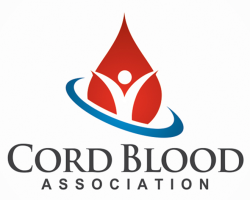
Cord Blood Facts:

Cord Blood Facts: It is taken from a newborn’s umbilical cord shortly after birth. It is a rich source of stem cells that can be used to treat many diseases. Including several forms of leukemia, lymphoma, and anemia, as well as sickle cell disease.
Parents have the option to discard the cord blood, donate it to a public bank, or store it in a private family cord blood bank.
In a four-part series of brief articles, representatives of the nonprofit Cord Blood Association explain how cord blood is collected and banked. How it is used to treat disease. What parents, especially those who are not of Northern European ancestry, should know to make an informed decision.
Why Is Cord Blood Important?
By Karen Ballen, MD, and Arthur Flatau, Ph.D.
Consider these interesting facts:
▪️ For a blood or marrow transplant, the likelihood that a sibling is a complete biological match and can be a donor is 25%. If a patient does not have a sibling who is a compatible match, a donor outside of the family must be found. This is done through national and international donor registries.
The take-away from the above facts is that African-Americans needing a blood or marrow transplant more frequently must rely on banked umbilical cord blood. This makes it all the more important that African-American parents expecting the birth of a child knows their options for saving or discarding cord blood.
What Exactly is Cord Blood?
Cord blood is the blood left over in the umbilical cord and placenta after a baby is born. Throughout history, the umbilical cord and placenta have been discarded as waste when a child is born.
In fact, still today, these tissues are discarded in the majority of births. But over the past 30 years, medical scientists and physicians have researched on it. They learned about the rich source of stem cells in cord blood. More and more parents are donating or saving this blood.
Instead of discarding it as medical waste, parents have other options. They can:
▪️Donate to a public cord blood bank for use by anyone with a medical need
▪️Pay to store in a private family cord blood bank for possible future use by your family
If you are an expectant parent, talk with your obstetrician or other health care provider about the options that may be available to you.
Donating cord blood for public use or storing it for your family’s exclusive use is a personal decision, but your health care provider can advise you.
Why should I consider saving my baby’s cord blood?
In the upcoming installments in this four-part series, we will answer that question. Also others, such as how cord blood is collected. The diseases that cord blood can treat, and the relative benefits of public and private family banking.
NEXT ARTICLE: SHOULD I BANK MY BABY’S CORD BLOOD
About the Author:  Karen Ballen, MD, a hematologist/oncologist at the University of Virginia Health System. Moreover, he does cord blood research. Also, his articles about cord blood therapies frequently appear in medical journals.
Karen Ballen, MD, a hematologist/oncologist at the University of Virginia Health System. Moreover, he does cord blood research. Also, his articles about cord blood therapies frequently appear in medical journals.
Arthur Flatau, Ph.D. Who is a leukemia survivor. Also, he is chair of the Cord Blood Association Public Education Committee.
Join us over at the PB Moms Exclusive Circle. Where we invite healthcare experts to prepare us for life after childbirth and motherhood. Go to: pregnancybeyond.com/exclusive-circle
Follow PregnancyBeyond on Instagram, Facebook and Twitter




